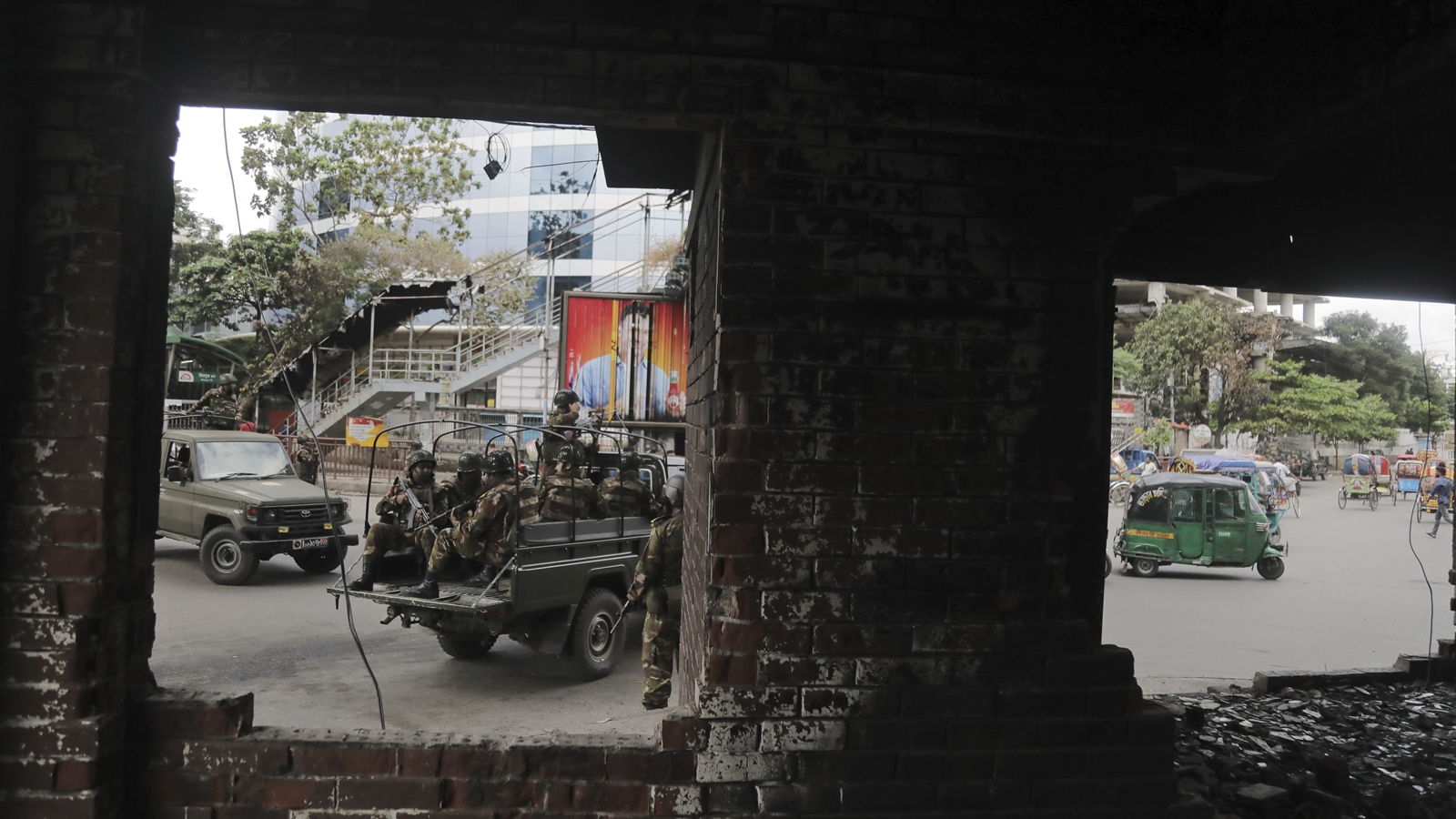A part of Prime Minister Sheikh Hasina’s speech on July 14 led to a series of misinterpretations, sparking protests from students at Dhaka University and other institutions. The protests mimicked the slogans of the Bangladesh Liberation War and were held peacefully for 14 days, with students blocking highways and submitting a memorandum to the president’s office. However, matters escalated after an order by the High Court reinstating a 30 per cent quota for government jobs for descendants of freedom fighters. On July 21, the Supreme Court in its order scaled this back to 7 per cent. Several key issues arise:
The potential for harmful actions on the Dhaka University campus was mitigated by the proactive measures taken by the law enforcement agencies and the university administration on July 14. This highlights the importance of effective campus security and proactive management.
On July 15, students claimed that the prime minister should retract her remarks. The ruling party’s student wing, Bangladesh Chhatra League took steps to counter the protesters. A group claiming to be apolitical allegedly provoked the protesting students, pushing them towards a clash. The dynamic between the protesters and activists and the presence of external provocators further complicated the situation.
A BBC News Bangla report highlighted that the coordinators of the Quota Reform Movement were well-organised and systematic. The issue of fewer female students participating was noted, with promises to address it. Investigation into the protest coordinators’ speeches, organising capabilities, and networking revealed clear political affiliations. The Student League, which made a glorious contribution to the independence of Bangladesh, faced heavy criticism, with many viewing them as enemies of students. The so-called apolitical coordinators seemingly aimed to provoke violent clashes with the ruling party’s student wing, ultimately calling for the government’s resignation, deviating from the original Quota Reform demands. The intricate web of political affiliations and strategic manoeuvres underscores the depth of the issue, revealing how deeply entrenched political interests can shape and drive student movements.
Protests like these inevitably cause mental and physical stress and uncertainty. In 2002, when the police entered a women’s hostel, Shamsunnahar Hall of Dhaka University, it caused the residents and other women significant mental distress. The psychological impact of such protests on students, especially when historical and national sentiments are involved, is profound. The tension and uncertainty can exacerbate stress levels, affecting not just the immediate participants but also the broader student community and their families.
After 14 days of peaceful protest, the night of July 14 saw the students using controversial slogans, leading to violent clashes and loss of life.
The official investigations will reveal the true instigators. The escalation from peaceful protest to violent clashes highlights the delicate balance required to manage dissent and the critical role of effective communication and negotiation in preventing violence. The involvement of younger students in the protests raises ethical concerns about the manipulation and exploitation.
Preplanned or mismanaged?
The Quota Reform Movement displayed either preplanned tactics or a lack of organisation. The failure of national intelligence authorities to gather information about the planned disrespect towards the slogans and sentiments of the nine-month war is evident. One protest coordinator said in an interview that the lack of government attention prompted them to announce the “Bangla block” activity. This situation called for more constructive and open conversations with authorities. If the protesters had refrained from using controversial slogans, paths for peaceful resolution may have remained open. The apparent disconnect between the protest organisers and national intelligence agencies points to a significant gap in information gathering and dissemination.
The aftermath of the protests and the subsequent clashes will likely have long-lasting repercussions on the political landscape, student activism, and the broader social fabric. Moving forward, it is crucial for all stakeholders, including the government, student leaders, and civil society, to engage in honest and open dialogue to address the root causes of such unrest and work towards sustainable solutions that prioritise the well-being and aspirations of the student community.
The media’s role
The role of the media in shaping public perception and influencing the course of events cannot be underestimated. The misinterpretation of the prime minister’s interview and the subsequent media coverage played a significant role in fueling the protests. This underscores the media’s responsibility to provide accurate and balanced reporting, especially in politically charged situations. Media literacy among the general public is essential to critically evaluate news sources and avoid being swayed by misinformation or biased reporting.
The involvement of various political factions and the strategic use of historical narratives and slogans also point to the need for a nuanced understanding of the socio-political context in which such protests occur. Slogans and national symbols hold significant emotional and symbolic power, and their use in protests can evoke strong reactions and influence the trajectory of movements.
In conclusion, the events following PM Hsina’s comments have brought several critical issues related to student activism, political manipulation, and the need for effective communication and dialogue in addressing societal grievances.
All stakeholders must reflect on the lessons learned from these events and work towards building a more inclusive and responsive political and social environment. The role of education in promoting critical thinking, media literacy, and civic engagement is also crucial in empowering the younger generation to participate meaningfully in the democratic process and contribute to the nation’s development.
Ultimately, the goal should be to create a society where diverse voices and perspectives are valued and where conflicts can be resolved through dialogue. By addressing the underlying issues and fostering a culture of inclusivity and respect, it is possible to build a more resilient and cohesive society that can confidently and in unison navigate the challenges of the future.
Asif Kabir was Media Consultant during Mujib Year of Bangabandhu Centenary, Founder- Janmobhumi Think Tank, Bangladesh




